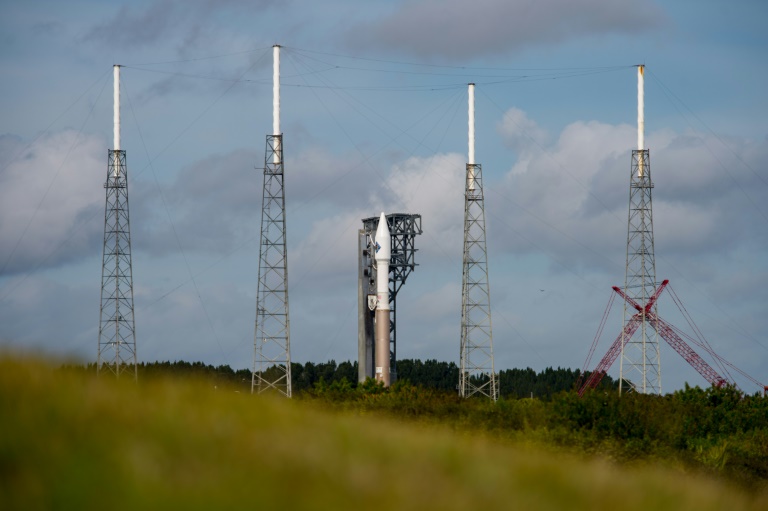-
Tips for becoming a good boxer - November 6, 2020
-
7 expert tips for making your hens night a memorable one - November 6, 2020
-
5 reasons to host your Christmas party on a cruise boat - November 6, 2020
-
What to do when you’re charged with a crime - November 6, 2020
-
Should you get one or multiple dogs? Here’s all you need to know - November 3, 2020
-
A Guide: How to Build Your Very Own Magic Mirror - February 14, 2019
-
Our Top Inspirational Baseball Stars - November 24, 2018
-
Five Tech Tools That Will Help You Turn Your Blog into a Business - November 24, 2018
-
How to Indulge on Vacation without Expanding Your Waist - November 9, 2018
-
5 Strategies for Businesses to Appeal to Today’s Increasingly Mobile-Crazed Customers - November 9, 2018
Atlas V Launched To International Space Station — Sunday Rocket Launch
The six space station astronauts managed to photograph the rising Cygnus from their windows as both craft made their way over the Atlantic.
Advertisement
On the fourth day of attempts, United Launch Alliance Atlas V launched from Brevard County Sunday afternoon with Orbital ATK’s Cygnus on board heading toward the International Space Station. The U.S. shipment of much-needed groceries and other astronaut supplies rocketed toward the International Space Station for the first time in months Sunday, reigniting NASA’s commercial delivery service.
In a string of failed resupply cargo ship launches, the space station has been struggling to rebound from this series of unfortunate events.
Orbital is one of two companies hired by NASA to fly cargo to the station after the space shuttles were retired in 2011.
The spacecraft will spend more than a month attached to the space station before its destructive re-entry into Earth’s atmosphere, disposing of about 3,000 pounds of trash in January.
Supplies at the station have been running low following several failed supplied runs.
During that failed 2014 launch, the 14-story rocket faltered just after launch, then exploded, before falling back onto the launch pad with a second larger explosion. Orbital ATK bought another company’s rocket, the veteran Atlas V, for this supply mission.
The capsule – Cygnus – carries more than 3500kg of food, clothing, computer gear, spacewalk equipment, science experiments and other supplies. However, according to NASA’s space station program manager, Kirk Shireman, this has not been a critical situation at all.
United Launch Alliance manager Vernon Thorp couldn’t help but notice all the number fours in Sunday’s launch equation. That launch will be the second or third for Falcon 9 since the accident, after a launch of 11 Orbcomm satellites tentatively scheduled for mid-December and, possibly, the SES-9 satellite for SES.
For the past six months NASA has relied on Russian and Japanese rockets to bring supplies to and from the space station. It is expected to return to flight by next summer.
While acknowledging 2015 has been a hard year because of the disrupted supply chain, Shireman said commercial space is inevitable and will drive down launch costs.
“It is our future”, Shireman stressed last week.
Advertisement
There are no astronauts inside Cygnus.




























